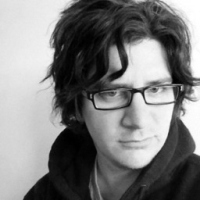They may have written such generation-defining classics as The Great Gatsby and On the Road, but they were just as likely to go on epic benders as they were to hit the bestseller lists. They were outspoken and polarizing, and lived fast and too often died young. They were the bad boys and girls of Western literature, the literary rogues.

10. Oscar Wilde
The poet Oscar Wilde drank absinthe, smoked opium-tainted cigarettes, wore his hair long, and wore extravagant fur coats over his colorful suits. When asked by customs agents in America if he had anything to declare, he said, “Nothing but my genius.” He was convicted of “gross indecency” for homosexual acts, which effectively ended his career as a playwright and poet.
9. Ernest Hemingway
In 1934 Vanity Fair celebrated Ernest Hemingway with a set of paper dolls, featuring interchangeable matador, caveman, bon vivant, fisherman, and soldier outfits. The magazine was paying homage to “Papa” Hemingway’s larger-than-life image, which owed a great deal to the booze-soaked tall tales he liked to tell. A few of his stories were even true: for instance, he once walked away from a plane crash—directly to the nearest bar, where he ordered a drink.
8. Anne Sexton
Anne Sexton broke new ground in the ’60s and ’70s with her frank confessional poetry, which she sometimes performed in front of her own experimental band, Anne Sexton and Her Kind. She was addicted to alcohol and sleeping pills, both of which popped up as frequent topics in her work. In one poem, she wrote that her substance abuse was her way of training for her eventual suicide, like an athlete “staying in shape.” She was 45 when she finally took her own life.
7. Truman Capote
“I’m an alcoholic. I’m a drug addict. I’m homosexual. I’m a genius,” Truman Capote declared with absolute earnestness. The critics agreed: his “nonfiction novel,” In Cold Blood, was indeed the work of a genius. Unfortunately, Capote never finished another book, instead spending his final two decades opining on the talk-show circuit and partying his nights away at clubs such as Studio 54.
6. Bret Easton Ellis
Bret Easton Ellis was sort of the literary Marilyn Manson of the ’80s and ’90s. He received death threats over his controversial novel (American Psycho), enraged critics, and spoke openly about his own drug use in interviews. He’s continuing to raise hell via his Twitter feed, @breteastonellis, which New York magazine called his “real art form.”
5. Dorothy Parker
Dorothy Parker smoke, drank, and slept around—in short, everything her male colleagues in the Algonquin Round Table were doing. Unfortunately, she went a little overboard with the alcohol and cigarettes (three packs a day), forcing her to use an undertaker’s perfume to mask the smell of her vices. She was well known for her contrarian wit and was not afraid to speak her mind. “This is not a novel to be tossed aside lightly. It should be thrown with great force,” she once said after reading a terrible book.
4. Edgar Allan Poe
“I have absolutely no pleasure in the stimulants in which I sometimes so madly indulge,” Poe wrote, referring to his alcohol abuse. Poe drank for the same reasons he wrote: to stave off his depression, which was like “a worm inside that would not die,” according to his French translator and fellow literary rogue, Charles Baudelaire. His dozens of stories and poems did little to lift him out of his perpetual state of poverty, while his alcoholism cost him many magazine jobs and, ultimately, his life.

3. Zelda and F. Scott Fitzgerald
F. Scott Fitzgerald’s debut novel sold over 50,000 copies in its first year, making him an instant celebrity. Fitzgerald and his wife, author Zelda Fitzgerald, partied hard during the Prohibition era and crashed along with the rest of the country during the Great Depression. “Of course you’re a rummy,” Hemingway once wrote to Scott, trying to cheer the down-on-his-luck, alcohol-dependent author up. “But no more than most good writers are.” Unfortunately, Zelda was hospitalized for schizophrenia, and Scott died at age 44 after suffering two heart attacks.
2. Hunter S. Thompson
“I hate to advocate drugs, alcohol, violence, or insanity to anyone, but they’ve always worked for me,” Hunter S. Thompson once remarked to a college crowd. Although he was known to exaggerate and embellish his journalism, Thompson was a legitimate drug addict, much to the consternation of his editors, friends, and family. He once ran for sheriff of Pitkin County, Colorado, on the Freak Power ticket, promising to decriminalize drugs. (He lost.)
1. Lord Byron
It comes as something of a surprise that Lord Byron ever found the time to write poetry. He is said to have slept with hundreds of men and women over the course of his lifetime. He also impregnated his half sister, drank wine out of a human skull, fired pistols indoors, spent his inheritance foolishly, and traveled the globe in search of adventure. Only one thing seemed to calm his wanderlust: “I find an interesting book the only sedative,” he said.






